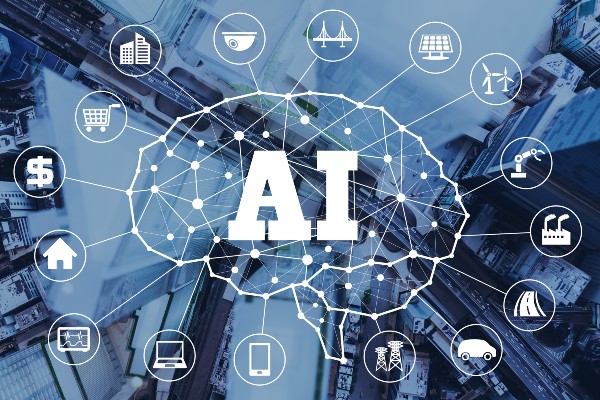The Advent of Artificial Intelligence: Unleashing the Power of Machines

Introduction
In the vast realm of technology, few innovations have captured the world's imagination and transformed industries like Artificial Intelligence (AI). Often depicted in science fiction as intelligent robots with human-like qualities, AI has evolved into a reality that is reshaping the way we live, work, and interact with machines. In this blog, we will delve into the fascinating world of AI, exploring its history, applications, potential, and the ethical considerations that come along with its development.
Understanding Artificial Intelligence
At its core, Artificial Intelligence refers to the simulation of human intelligence in machines that are programmed to learn and perform tasks with minimal human intervention. These intelligent systems can analyze data, recognize patterns, make decisions, and continuously improve their performance based on experience. AI algorithms can process vast amounts of information at lightning speed, enabling them to tackle complex problems that were once the domain of human cognition.
The Evolution of AI
The concept of AI has its roots in ancient mythology and folklore, where tales of automatons and self-operating machines hinted at the fascination humans have always had with creating artificial beings. However, AI as a formal academic discipline emerged in the 1950s, with the work of pioneers like Alan Turing, who proposed the idea of a machine that could exhibit intelligent behavior and pass the Turing Test.
Over the decades, AI experienced periods of enthusiasm and so-called "AI winters" when progress stalled due to technological limitations. However, recent advancements in computational power, the availability of massive datasets, and breakthroughs in algorithms, particularly in machine learning and deep learning, have driven AI into a golden age of innovation.
AI Applications: Changing the Landscape
AI's impact on various industries is profound and far-reaching:
1. Healthcare: AI assists in diagnosing diseases, analyzing medical images, and predicting patient outcomes, revolutionizing personalized healthcare and drug development.
2. Finance: Financial institutions leverage AI for fraud detection, algorithmic trading, and customer service, improving efficiency and risk management.
3. Transportation: Self-driving cars and AI-driven logistics optimize traffic flow and enhance road safety.
4. Education: AI-powered educational tools offer personalized learning experiences, catering to individual student needs and abilities.
5. Entertainment: AI is behind recommendation systems on streaming platforms, creating personalized content suggestions for users.
6. Customer Service: Chatbots and virtual assistants enhance customer support, providing instant responses and 24/7 availability.
AI and Ethics: Striking the Balance
As AI's capabilities expand, so do the ethical concerns surrounding its use. Issues such as data privacy, bias in algorithms, and job displacement are essential considerations. Striking a balance between technological advancement and responsible AI development is crucial to ensure its benefits are accessible to all while avoiding potential pitfalls.
Conclusion
Artificial Intelligence is undeniably one of the most transformative technologies of our time. As it continues to advance, we must approach AI development with caution, ethics, and an eye toward addressing societal challenges. With the right approach, AI has the potential to unlock unimaginable opportunities, revolutionize industries, and positively impact the lives of people around the world. The future of AI is still being written, and as we embark on this journey, it's vital to shape it responsibly, harnessing the power of machines for the betterment of humanity.
Comments
Post a Comment